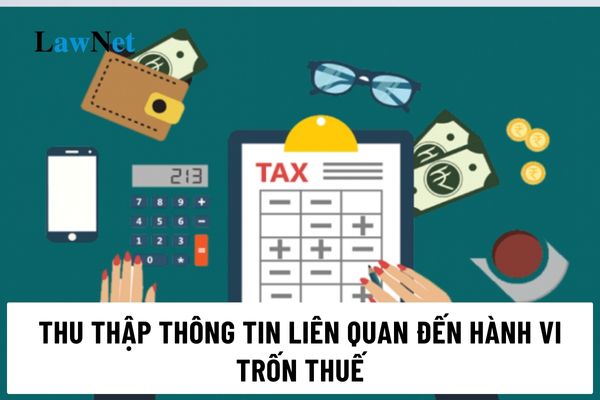Collection of Information Related to Tax Evasion in Vietnam
Collection of Information Related to Tax Evasion in Vietnam
Based on Article 121 of the Law on Tax Administration 2019, the collection of information related to tax evasion is conducted as follows:
- The head of the tax administration agency has the authority to request agencies, organizations, and individuals with information related to tax evasion to provide information in writing or respond directly.
- In cases where information is requested in writing, agencies, organizations, and individuals are responsible for providing information that adheres to the content, time frame, and address required, and bear responsibility for the accuracy and truthfulness of the provided information. If unable to provide, they must respond in writing and state the reason clearly.
- In cases where information is requested through direct response, the individual requested to provide information must be present at the specified time and place recorded in the document to provide the requested information and bear responsibility for the accuracy and truthfulness of the provided information. If unable to be present, the information provision must be done in writing.
During the process of collecting information through direct response, members of the inspection team must prepare a working report and openly record or video the session.

Collection of Information Related to Tax Evasion in Vietnam (Image from the Internet)
When is the Impoundment of Documents and Items Related to Tax Evasion Applicable in Vietnam?
Based on Article 122 of the Law on Tax Administration 2019, the following provisions apply:
Impoundment of Documents and Items Related to Tax Evasion
1. The head of the tax administration agency or the head of the tax inspection team decides on the impoundment of documents and items related to tax evasion.
2. The impoundment of documents and items related to tax evasion is applied when it is necessary to verify details as a basis for decision-making or to immediately prevent tax evasion.
3. During a tax inspection, if the inspected entity shows signs of dispersing or destroying documents and items related to tax evasion, the head of the tax inspection team on duty has the authority to detain those documents and items. Within 24 hours from the time of impoundment, the head of the tax inspection team must report to the head of the tax administration agency to issue a decision on the impoundment of documents and items; within 8 working hours from receiving the report, the competent authority must consider and make a decision on the impoundment. If the competent authority disagrees with the impoundment, the head of the tax inspection team must return the documents and items within 8 working hours from the time the competent authority disagreed.
4. When detaining documents and items related to tax evasion, the head of the tax inspection team must prepare a impoundment record. The record must state the name, quantity, and type of the detained documents and items; the signatures of the detainee and the person managing the violating documents and items. The person issuing the impoundment decision is responsible for preserving the detained documents and items and is accountable before the law if the documents and items are lost, sold, replaced, or damaged.
...
When it is necessary to verify details as a basis for decision-making or to immediately prevent tax evasion, the impoundment of documents and items related to tax evasion will be applied.
When is a Search of the Premises for Documents and Items Conducted in Vietnam?
Based on Article 123 of the Law on Tax Administration 2019, the following provisions apply:
Search of the Premises for Documents and Items Related to Tax Evasion
1. The head of the tax administration agency decides to search the premises for documents and items related to tax evasion. If the premises for documents and items related to tax evasion is a residence, it must be approved in writing by the competent authority as prescribed by law.
2. The search of the premises for documents and items is conducted when there is evidence of hiding documents and items related to tax evasion.
3. When searching the premises for documents and items, the owner of the searched place and a witness must be present. If the owner of the searched place is absent and the search cannot be delayed, a representative of the local government and two witnesses must be present.
4. Searching the premises for documents and items related to tax evasion is not allowed at night, on holidays, or during festivals, except in cases of flagrant offenses, and the reason must be recorded in the report.
5. All searches of places hiding documents and items related to tax evasion must have a written decision and a report. The decision and report of the search must be handed to the owner of the searched place.
When there is evidence of hiding documents and items related to tax evasion, the search of the premises for documents and items will be conducted.

